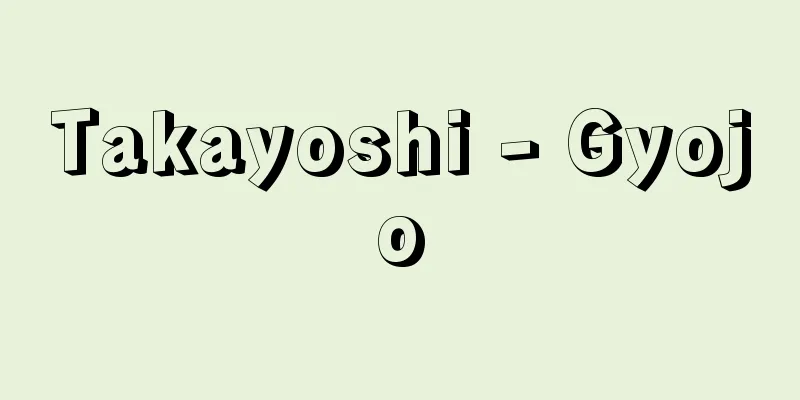Head priest - Kanshu

|
It can also be read as "kansu" and written as "kanshu" or "kanshu." It means the head of a particular sect or school. It was first used to refer to the head priest of the Tendai sect, and then it was applied mainly to priests, and later it came to be used to refer to the head temples of each sect and the chief priests of various large temples. Source: Encyclopaedia Britannica Concise Encyclopedia About Encyclopaedia Britannica Concise Encyclopedia Information |
|
「かんす」とも読み,管主,貫首と書く場合がある。一宗一派の頭領の意。天台座主をさして用いられてから,おもに僧職に適用され,のち各宗の本山や,諸大寺の住持の呼称となった。
出典 ブリタニカ国際大百科事典 小項目事典ブリタニカ国際大百科事典 小項目事典について 情報 |
Recommend
Struggle against business consolidation - Struggle against business consolidation
...However, the policy itself had problems with i...
Trailing begonia
...Although there are several species whose stems...
Kishishu - Kishishu
…The most common number of beads is 108, but acco...
Italian Cypress - Itariaitosugi
...The seeds of the cones take two years to ripen...
Carnegie Endowment for International Peace
Carnegie Endowment for International Peace is an A...
Cart (car) - car
…In 1956, an American racing car designer created...
Tailing
…A dam for depositing and dewatering slurry (a su...
Prague School of Linguistics
A school of linguistics formed in the mid-1920s by...
Reference voltage diode
…So, to make the temperature coefficient of the t...
Great black woodpecker
A bird of the woodpecker family (illustration). To...
joft
…In Anatolia and the Balkans under the Ottoman Em...
Keltoi
…one of the ethnic groups that make up the histor...
Itobata
...There is a similar flag called a do (dhvaja in...
Ikenozenni - Ikenozenni
Dates of birth and death unknown. A woman from th...
Rudder fore - rudder fore
…Originally it means a small boat. However, it is...









